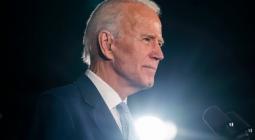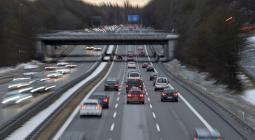Reaching UK net zero target cheaper than we thought, says climate adviser.

Exclusive: Chris Stark says cost is surprisingly low but criticises government for absence of a plan
Reaching net zero carbon emissions in the UK is likely to be much easier and cheaper than previously thought, and can be designed in such a way as to quickly improve the lives of millions of people, a senior adviser to the government has said.
Chris Stark, the chief executive of the Committee on Climate Change, the UK’s independent statutory adviser, said costs had come down rapidly in recent years, and past estimates that moving to a low-carbon economy would cut trillions from GDP were wrong.
“Overall, the cost is surprisingly low – it’s cheaper than even we thought last year when we made our assessments. Net zero is relatively low-cost across the economy,” he said. “But that rests on action now. You can’t sit on your hands and imagine it’s just going to get cheaper by magic.”
Renewable energy prices have plunged in the last decade, putting solar and wind at lower cost than fossil fuels in many countries, spurring a global boom in clean power. The International Energy Agency said this week there had been record growth in renewable energy installation in 2020, despite the coronavirus pandemic and low oil prices.
When the Climate Change Act was passed in the UK in 2008, the government estimated that the cost of meeting its then target of an 80% reduction in emissions by 2050 would be about 2% of GDP over that period. Now, the costs are expected to be well below that, and likely to fall further.
The Committee on Climate Change will set out the costs and benefits of reaching net zero, and advice on the UK’s next carbon budget, in early December, postponed from this summer owing to the coronavirus crisis. Stark said the government was not yet doing enough to meet the legally binding target of net zero emissions by 2050, and needed to come up with a coherent strategy.
“I don’t particularly see problems [in decarbonising the economy] – what I see is an absence of a plan,” he told the Guardian. “We have to get to the point by about the start of the next decade where all new investments, every new car, every new van, every new boiler, every new bit of plant and machinery for a business – that needs to be zero carbon by then, or at least have a plan in place to become zero carbon. The biggest challenge that I see at the moment is that we haven’t got a plan that looks anything like that for the UK at the moment.”
In some sectors, moving to zero carbon will represent a cost saving. Electric cars, for instance, will be cheaper to run than petrol or diesel vehicles. Eventually, the same is likely to be true of low-carbon domestic heating, after the cost of switching. But until now, the main mechanism for paying for the move to a low-carbon economy has been additions to energy bills, which fall disproportionately on poorer people.
“There is a lovely opportunity for the Treasury to put some good policy around this so that we get that kind of fair and cheap transition that we all want to see,” Stark said. “The flip side of that is if we don’t put those steps in place, this going to be quite a hard transition. Lumping costs on to the electricity bill is a regressive step, so we need to think about broader mechanisms to drive the investment that we need to get to net zero, and we need to think about who we recover those costs from.”
Ministers are under increasing pressure to come up with a net zero plan as the UK prepares to host the next UN climate summit. Cop26, which would have taken place this week in Glasgow had the Covid-19 crisis not forced a postponement, is one of the last chances for the world to get on track to meet the goal of the 2015 Paris agreement of holding global temperature rises to no more than 2C above pre-industrial levels, and preferably no more than 1.5C.
Before the summit, now rescheduled for November 2021, all countries are expected to come up with detailed national plans – called nationally determined contributions (NDCs) – for making stringent reductions in emissions over the next decade. This is a requirement of the Paris agreement, as the national commitments put forward in 2015 would take the world to 3C of heating.
To prepare for next year’s talks, Boris Johnson and the UN secretary general, António Guterres, will co-host a virtual meeting of world leaders on 12 December to mark the fifth anniversary of the Paris agreement. The hosts are hoping that heads of government will set out commitments to reach net zero by mid-century, which many leading nations have now done, and agree to submit their NDCs in the next few months.
Johnson was due to unveil a 10-point plan on meeting net zero this week, but the Guardian understands this has been postponed to an unspecified date. The points will include green home grants for insulation, an expansion of offshore wind, bringing forward the phase-out of petrol and diesel cars to 2030, investment in carbon capture and storage and nuclear power, and measures to restore the natural environment.
“For us to be a good president of Cop26, we need to have a strong set of domestic plans for cutting emissions here in the UK. Then I think there’s every prospect that Cop26 next year will be a celebration of how quickly we’re now moving,” said Stark. “If we don’t get these plans together, we’re not going to have that kind of moment and the UK will have difficulty hosting that summit.”
A government spokesperson said: “We are taking every opportunity to build on the UK’s fantastic track record for tackling climate change as we build back greener from the pandemic. Last month the prime minister outlined ambitious plans to build enough offshore wind capacity to power every home in the UK by 2030, which is just one part of his 10-point plan for a green industrial revolution to be set out later this year.”
12 November 2020
The Guardian




